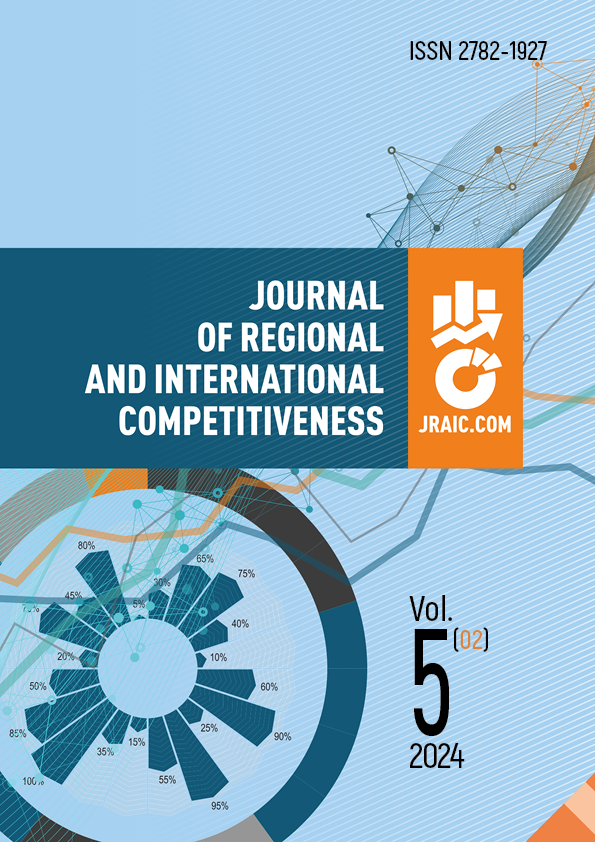Samara, Samara, Russian Federation
Kostroma, Kostroma, Russian Federation
The article reviews a political-economic analysis of the growing dynamics of the education system in Russia, using the example of higher education in the creative solutions of the digital economy. The author examines the economics of education from the political economy view. The evolution of targets in higher education is presented. When comparing definitions of higher education targets, they provide two mutually related, but competing functions of higher school: the role of higher education in the teaching workforce for all economic sectors and the general intellectual growing of a creative, socialized personality. The nature of economic interests in the higher education system is determined. Market economy and democratic society principles imply models of competitive harmony in economic interests of higher education. The educational product is analyzed from the principle of diglossia as a public and private benefit. In the near future, a combination of fee and free higher education in Russia is inevitable. However, the share of fee-paying educational services of universities will dramatically increase. The analysis confirms academic steps to create a scientific product in the digital economy. Competition of universities in the market of scientific products for receiving profitable contracts with firms and corporations stimulates universities to increase their rankings. The conclusion shows the inconsistency of the dynamics of the development of the education system of Russia in the digital economy. An important contradiction is in the prevalence of political decisions free from long-term socio-economic consequences.
digital economy; economic interests in higher education system; education economics; higher school; political economy; Russian education system
1. Noskov, V. A., & Sviridov, N. N. (2003). Institutionalization of public goods. Samara: Izd-vo GNC RAN (in Russian).
2. Belyakov, S. A., & Klyachko, T. L. (2013). Russian higher education: models and development scenarios. Moscow: Izd-vo “Biznes” RANHIGS (in Russian).
3. Efimova, V. S. (2014). The future of higher education in Russia: an expert view. Foresight study - 2030. Moscow; Krasnoyarsk: Sibirskij federal’nyj universitet (in Russian).
4. Vidyapina, G. I., & Zhuravleva, G. P. (1997). Economic theory (political economy). Moscow: INFRA-M (in Russian).
5. Noskov, V. A. (2003). Basics of the formation of the market of higher education services. Ekonomicheskie nauki, (5), 91-98 (in Russian).
6. Maloletko, A. (2009). The system of higher professional education: management of economic security. Problemy teorii i praktiki menedzhmenta, (9), 17-22 (in Russian).
7. Chekmarev, V. V., & Socks, V. A. (2003). Economic relations in the production of educational services. Moscow: Izd-vo GNC RAN (in Russian).
8. Clark, B. R. (2011). Higher education system: academic organization in a cross - national perspective. Moscow: Izd-vo Zdanie Vysshej shkoly ekonomiki (in Russian).
9. Clark, B. R. (2011). Maintaining change in universities. Continuity of case studies and concepts. Moscow: Izd-vo Zdanie Vysshej shkoly ekonomiki (in Russian).
10. Subetto, A. I. (2015). Scientific and educational society as a basis for the development strategy of Russia in the XXI century. Sankt-Peterburg: Asterion (in Russian).
11. Dobryakova, M. S. (2012). Fifty modern thinkers about education. Moscow: Izd-vo Zdanie Vysshej shkoly ekonomiki (in Russian).
12. Readings, B. University in the ruins. (2010). Moscow: Izd-vo Zdanie Vysshej shkoly ekonomiki (in Russian).
13. Thomas, G. (2016). Education. A very brief introduction. Moscow: Izd. dom HSE (in Russian).
14. Noskov, V. A., & Bolgova, E. V. (2010). The economic role and economic functions of education in the cluster of the regional economy. Ekonomicheskie nauki, 5(66), 289-292 (in Russian).
15. Saaty, T. L. (2016). Relative Measurement and Its Generalization in Decision Making. Why pair comparisons are key in math for measuring intangible factors. Cloud Of Science, 3(2), 171-262 Retrieved from https://cloudofscience.ru/sites/default/files/pdf/CoS_3_l 71 .pdf
16. Dobryakova, M., & Pirozhkova, L. (2014). Mass higher education. Triumph of the BRIC: Martin Karnoi, Prashant Loyalka, M. Dobiyakova, Rafik Dossani, Isak Frumin, Katherine Koons, Dzhandhayla B.G. Tilak, Rong Wang. Moscow: HSE (in Russian).
17. Golubeva, M. N., Korbut, A. M., & Ortega Gasset, H. (2010). Mission of the University. Moscow: Izd-vo Zdanie Vysshej shkoly ekonomiki (in Russian).
18. Buchanan, J. (1999). The Logical Foundations of Constitutional Liberty. Liberty Fund: Indianapolis.
19. Chekmarev, V. V. (2009). New political economy: sources and results. Kostroma: KSU them. N.A. Nekrasova (in Russian).
20. Slobodchikov, V. I., Korolkova, I. V., Ostapenko, S.N., Zakharchenko, A. A., Shestun, M. V., Rybakov, E. V., & Moiseev, S. Yu. (2017). Short. The systemic crisis of education as a threat to the national security of Russia. Svobodnaya mysl’, 2(3) (in Russian).
21. Vasilenko, N. V. & Linkov A. Ya. (2017). Economics of education: textbook. Moscow: INFRA-M (in Russian).
22. Tao, B. L., Berci, M., & He, W. (2006). The Commercialization of Education. The New York Times. Retrieved from http://wwrw.n)tinnes.com/ref/college/coll-china- education-005.html
23. Twebaze, R. M. (2015). Commercialization of Education in Uganda; Causes and Consequences. International Journal of Recent’ Scientific Research. 6(7), 5107-5112.
24. Borgohain, S. (2016). Critical Analysis. International Research Journal of Interdisciplinary & Multidisciplinary Studies (IRJIMS). I(XII), 71-76.
25. Hanushek, E. A., Machine, S., & Woessmann, L. (2016). Handbook of the economics of education. Boston: Elsevier.
26. Yakovleva, N. G. (2017) Commercialization, bureaucratization, education management of post-Soviet Russia: A political economy view. Problemy teorii i praktiki menedzhmenta, (3), 121-130 (in Russian).
27. Chistyakova, S. N., & Gevorkyan, E. N. (2016). Podufalov. Actual problems of professional and higher education. Moscow: Izd-vo Zdanie Vysshej shkoly ekonomiki (in Russian).
28. Collini, S. (2016). Why do we need universities. Moscow: Izd. HSE Zdanie (in Russian).




















